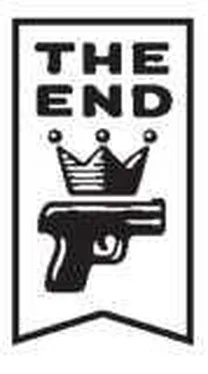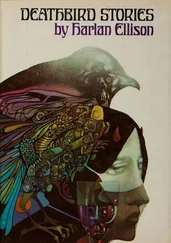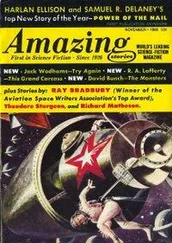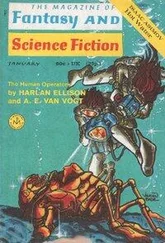Tom-Tom edged away, a lingering fear of the kids in his eyes. He busied himself with non-essentials.
It was a dead bit, all the way around. Rusty slid off the stool, ambled toward the door. He stopped with one hand on the glass and turned to the little soda jerk with a stark expression on his face. “You see ’em, you give ’em the word. I don’t scare easy, man.”
Then he hit the street. That was the second incident and it didn’t really matter.
The third did. It was bad.
If there was a tie-up between the Cougars and the Cherokees, if there was something in common, something already stated as important, it was the dope. The weed. The H. The white powder that had invaded the club since Rusty had left. Rusty had fought against the encroachment of dope since he had won the presidency of the gang from the previous leader in a fight. But after he had left, and Candle had come to power, he had heard many rumors.
The kids were on. They were real high. Sky.
Now the Cherokees had been hyped to a rumble and the Cougars were warning him away from that turf and the kid, Mirsky, had indicated a tie-up somewhere. So he had to find the source of dope in the neighborhood. Obvious. The pusher.
But that would not be as easy as it looked.
The pusher was Boy-O, naturally. Everyone knew that. But where did the scumbag get it from? The Horse didn’t come up out of the sidewalk and it didn’t fall from the sky like manna. It had to come in from Mexico, or it had to come ashore down at the docks. But it sure as hell didn’t spring full-blown into Boy-O’s reeky fingers. So just finding the little scumbag wasn’t enough. He had to find the hands that put the stuff into Boy-O’s hands and the hands that were behind those. And on, and on, until maybe even downtown was involved, and that was way the hell out of Rusty’s territory.
What the hell had he fallen into? Or rather, what had the death of Dolores dragged him into? He had to find Boy-O. Then it hit him…
Boy-O! That was part of the answer. The tie-up he had been seeking was now quite clear to him. He should have realized it when Mirsky said, “They kept callin’ him kid, or boy, or somethin’—”
Boy-O, who ran tea in the Cougar turf—and now it was apparent he had a similar route in Cherokee turf—had been the other person Mirsky had not seen in the darkness of the garage. He had persuaded some of his addicts to warn everyone in the Cherokee turf that Rusty was around and not to spill anything. It had to be. Sure they had called the half-seen person “boy.” But it had been Boy-O, not just boy. The tie-up was there. Dope and Boy-O and the rumble and the silence of the gangs. Now Rusty knew why the Cherokees and the Cougars were silent to him. If they spilled anything, they would get their pot cut away from them and that was the worst that could happen to a bunch of junkies.
But whether Boy-O had wanted silence simply because he was afraid Rusty would find out who had peddled the stuff that had gotten the Cherks high enough to rumble, or whether there was another tie-up between Boy-O and the death of Dolores he didn’t know. But he would find out.
It was fairly obvious why Boy-O wanted so much silence. At best, peddling the snuff was a risky bit and with Rusty so hot to find out who had done his sister, there was always the chance Rusty might reveal the snuff-peddler’s name to the cops, either out of hatred (for the rumble had been taking place while Rusty might have stopped whoever raped his sister) or just out of spite. So the silence curtain had fallen.
But now Rusty knew the score. He had to find Boy-O. He might be the key—the key to the man in the camel’s hair coat.
But where was Boy-O? He had gone underground. Would the neighborhood help Rusty find him?
The neighborhood was cool and deadly these days. They were waiting, like a driver on a dynamite truck, waiting for the big boom that had to come. The word had filtered all through the turf and everyone knew the big trouble was brewing. When one of the gang turned on his fellows, when the club went after a lone stud, there was bound to be trouble. Worse than a rumble. There would be running and shooting and one morning the Department of Public Sanitation would find something messy in one of the gutters.
Then the fuzz would start prowling and a lot of families would be broken up as kids were hauled away to the line-up. This was going to be a bad time and anyone who felt the chill wind of trouble in the neighborhood was clamming up, staying as far from the boom as possible.
Doors were closed to Rusty.
Duke Ferreira might have helped, but—
“Look, kid, it’s not I don’t wanna give you the word. It’s not you ain’t a good kid. But I got a business here, an’ I can’t take the chance on goofin’ out. Y’know what I mean?”
Rusty knew what he meant and left the horse parlor with the blare of the loudspeakers from Santa Anita, Belmont and Hialeah ringing in his ears. The next time Duke needed a runner in a hurry Rusty was going to be unavailable.
Whitey Savest might also have helped, but—
“Geddouda here. You’re a jinx. I don’t need no more fraykin’ trouble. You promised me protection when you was with them kids and when you got the boot that stinkin’ Shaster kid put the screws to me good. I got ten machines out of whack ’cause of them kids. So beat it. Now!”
Rusty left the pinball joint with his ears stinging. He would see that Whitey had more trouble, if he could. But, hell, why bother? He didn’t care for revenge. Not on Whitey, at any rate.
Weissenborn couldn’t help. Wouldn’t help. Mae Franco wouldn’t help. Swart wouldn’t help—he was out cold and snoring in a rear seat of the Tivoli, anyhow.
So Rusty walked the streets till the evening closed down again, and Boy-O had laid out some place where he was unavailable.
Then the third incident occurred.
Rusty passed the black mouth of the alley separating two nameless apartment buildings and his mind was a welter of worry and indecision. So far, everything he had done had come to a blind end. He had been threatened, not very hard, but enough to warn him that he was treading dangerous ground. He passed the alley without pausing to steer away from it as he usually did at such empty holes.
The arm came out and grabbed him around the neck. He slipped and fell, and the hand at the arm’s end grasped his collar, dragged him, sitting, into the darkness.
He knew the odor instantly. He tried to blank it off, tried to pretend it was not happening. It was Pops.
He could smell the odor of the sewers. The smell of doorways with copies of the Post beneath the man’s dirty suit jacket. The smell of desperation and over it all, stinking god, smelling like the slop it was, cheap wine.
Tokay. California White. Sneaky Pete. Sweet Lucy. Rubbing alky. Radiator anti-freeze, filtered down through a three-day-old loaf of bread. High and smelling, a palpable aura around him, reeking, rising into the garbage odor of the alley. Rusty choked and his throat clogged and his eyes screwed tight-shut and he tried to get away, twisting on the pavement. He was dragged quickly, backward, the seat of his pants burning cement. In a moment the hand tightened, slung him forward against the brick wall of the building and Rusty scuttled around till he could see the dark shadow of his father, hulking before him.
“You stay home an’ don’t go botherin’ nobody no more,” the man said. His breath was the foul stink of decayed teeth and rotten food. The air was filled with it and Rusty gagged again. He wanted to hunker over, pull his knees up and lay his head down, eyes closed. He wanted to get away from here.
The man before him was a dimness, yet Rusty knew every inch and plane of his face. It was strange. He had spent years forgetting that face, blanking it so that each time he saw it, it passed out of his mind instantly. Yet now, so close to that face, but unable to see it, he knew it far better than anything in the universe—the puffy eyes with the black, humped rings beneath them, the flattened, putty blob of a nose, the fleshed pads of the lips, it was all there, so clearly, so real.
Читать дальше












